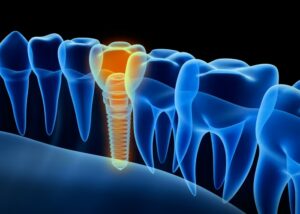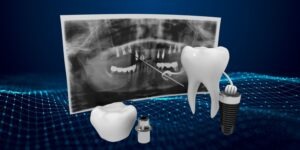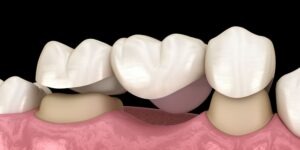Why Children are at High Risk of Tooth Decay
Children are susceptible to tooth decay, and the risk increases as children become older and more independent. Between ages 6 to 11 it is estimated 1 in 4 children experience tooth decay. From age 12 to 19 this increases to 3 in 5 children. This is why good dental hygiene for children is so important.
One of the main reasons for tooth decay is diet. Children are drawn towards sugary choices like candy and fizzy drinks. Many foods are highly processed today, with high sugar levels, creating the perfect acidic conditions for bacteria to thrive. This bacteria leads to a buildup of plaque and tartar, leading to tooth decay.
Everyone wants to treat their child, but moderation is key. Try to minimise snacks which are high in sugar, stocking up on more fruit instead. As well as cooking more with fresh ingredients, you can also encourage your child to drink water in place of sugary drinks like cola.
As with adults, oral care is essential in reducing the risk of tooth decay in children. One of the reasons tooth decay may increase as children get older could be because their oral care routine is not overseen so much by their parents compared to when they were younger. As children enter their teens, they may not keep to as strict an oral care routine as before.
Reminding children of any age why oral care is so important can help make it more of a priority in their eyes. This is similar to how when they were younger, you might brush your teeth as a family to illustrate to them how everyone needs to keep their teeth clean. Teaching children how to brush and floss properly will also set them in good stead.
The Advantages of Early Orthodontics in Children
If your child has dental problems like crowded teeth or protruding front teeth, early orthodontic work may be beneficial:
1. Orthodontic work in children age 6 or 7 is effective because the jaw is still developing; it can encourage adult teeth to come through in the optimal position and can be useful if dental arches and jaws are not in the correct position.
2. Early orthodontics could prevent braces in teenage years.
Your dentist will be happy to discuss whether your child would benefit from early intervention.
Dealing with a Child’s Loose Teeth
It is a common question from parents: When a milk tooth is loose, should we allow it to fall out naturally, or should we try to pull it out? You can contact your dentist for advice but generally it is a natural process and the tooth will come out of its own accord when ready. Your child can encourage it by gently wiggling the tooth but do not forcefully pull out a loose tooth as this can damage the roots and gums, as well as cause pain and unnecessary bleeding.
What to do if a Child Damages a Tooth
If your child damages a tooth don’t panic. Take them to the dentist without delay so the damage can be assessed and repaired as necessary. In the case of a chipped tooth this is relatively simple and straightforward to do.
Responding quickly, particularly in the case of an adult tooth being knocked loose, can be the difference between preserving and losing the tooth. An adult tooth will need to be secured with stabilising wires or dental material as soon as possible. Even if it’s a baby tooth which is knocked loose, take your child to the dentist straight away as it can have an impact on the development of adult teeth.
Best Choice of Sweets for Children’s Teeth
Children love a treat but unfortunately tend to opt for those sweets that are most harmful to their teeth. All sweets contain sugars and sweeteners — and these play a big role in tooth enamel damage and cavities.
While no sweets can be deemed as “safe” for teeth, these are the least harmful:
– Chocolate
– Granola or bars containing nuts
– Sugar-free gum
Children’s exposure to sweets should be rationed or only enjoyed on special occasions in order to keep the dentist happy and avoid serious issues with their teeth and dental health. Your choice of sweets for your child is all part of establishing good dental hygiene for children.
Making Dentistry Fun for Children
Making dental hygiene fun can encourage children to brush and floss regularly. Alongside regular trips to the dentist, this can help make sure their teeth develop properly.
Key takeaways:
1. Using play, you can practice visits to the dentist with children, encouraging good oral care habits.
2. Interactive apps can be used to engage children and show them how to best brush and floss their teeth.
3. A chart with stickers can help children remember to brush and floss, perhaps rewarding them when the week is completed.
4. Supervising brushing can not only help your child to have better oral health, but making it part of your family time may help motivate children to be more consistent with their brushing and flossing.
Tooth Fairy Gifts that Teach Children Something Valuable
At around age 5, children begin to lose their baby teeth. Receiving a visit from the tooth fairy can be a chance for parents to teach good habits right from the start.
Key takeaways:
1. The tooth fairy can leave a hand-written letter with a reminder to brush and floss.
2. Reinforce the link between dental health and food choices by leaving a healthy treat under their pillow.
3. Consider gifting a fun experience instead of money (for example, going to the zoo).
Don’t hesitate to ask your dentist for other tips and creative ideas.
The Best Children’s Dental Care
We passionately believe that the earlier your children learn how to look after their teeth and gums, the better their chances of keeping them for life! Establishing good dental hygiene for children is one of our top priorities.
And we want their visit to the dentist to be fun and relaxing. It’s essential to ensure that they truly understand the importance of good oral health and that they never feel nervous about coming to see us.
Which is why – just for them – we have:
– iPads for kids with education apps on
– TV screens on each treatment suite ceiling – patients can choose whatever film/cartoon they want to watch
– A sonos system for patients to choose their own music
– Complimentary choice of refreshments in the patient lounge including safe drinking cartons for children with their names on, not forgetting the straw!
– We offer dental payments plans starting from £8.95 per child per month – a small price to pay for keeping your children’s teeth and gums in tip-top condition. There are also family discounts available.



